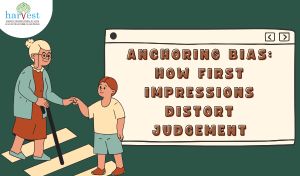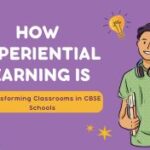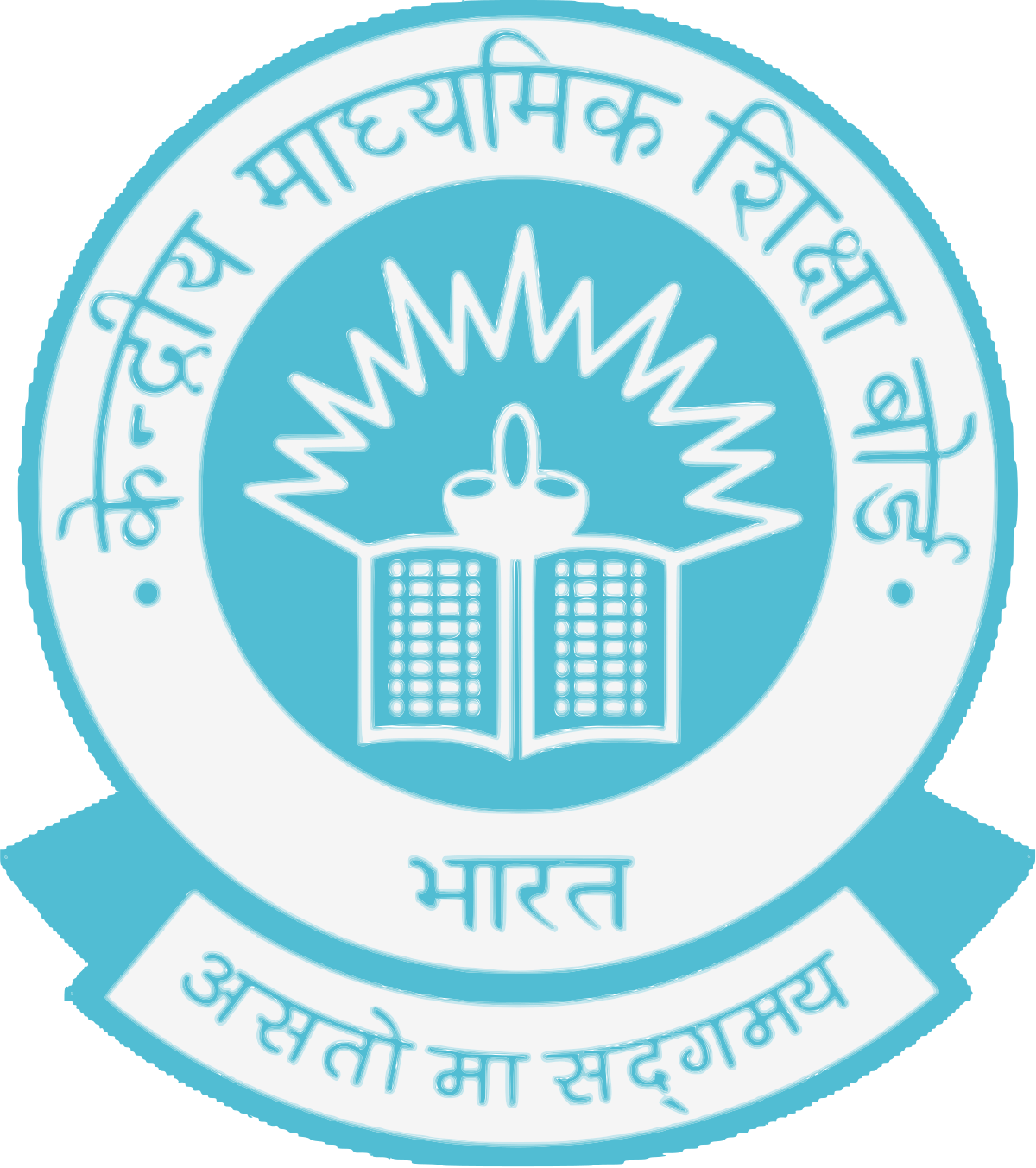Anchoring Bias: How First Impressions Distort Judgement
In a world saturated with information and rapid decision-making, our minds often resort to shortcuts—mental frameworks that help us process data quickly. While these shortcuts can be efficient, they can also lead to cognitive distortions. One of the most common of these distortions is anchoring bias. At Harvest International School, one of the best schools in Sarjapur Road Bangalore, we recognize the profound impact of such biases on students’ thinking and decision-making. Through a blend of awareness, education, and holistic development, we help students overcome these invisible yet influential forces.
What Is Anchoring Bias?
Anchoring bias occurs when individuals rely too heavily on the first piece of information they receive—the “anchor”—when making decisions. For instance, if a student hears that a math test will be extremely hard, they may enter the classroom already feeling defeated, regardless of their preparation or actual capability.
Even seasoned adults fall prey to this bias. Whether it’s judging someone’s intelligence based on their appearance or forming opinions from first impressions in interviews, anchoring influences both minor and significant life decisions.
As one of the best schools in Bangalore India, Harvest International School integrates cognitive science principles like anchoring bias into its pedagogy, ensuring students grow not only academically but also intellectually and emotionally aware.
The Science Behind Anchoring
Psychologists Amos Tversky and Daniel Kahneman first introduced anchoring bias in 1974. Their experiments revealed that even arbitrary numbers could significantly sway decisions. For instance, when participants were asked if the percentage of African nations in the UN was higher or lower than a random number spun on a wheel, their answers were heavily influenced by that number—even though it was meaningless.
This illustrates how first impressions or “anchors” can distort subsequent thinking. As a part of our curriculum, students at Harvest International—one of the CBSE schools in Bangalore Sarjapur Road—are introduced to such groundbreaking research to sharpen their critical thinking and prevent subconscious errors in judgement.
How Anchoring Bias Manifests in Students
Anchoring can emerge in various academic and social contexts:
1. Academic Expectations
Students often anchor their perception of a subject based on their first test score. A poor result might convince them they’re “bad at math” or “not creative,” when in reality, it may have been a one-time struggle or an unfamiliar teaching method. As one of the top schools in Bangalore, we work to break these limiting beliefs through continuous feedback, support, and mindset-building practices.
2. Peer Relationships
Initial impressions often dictate social hierarchies in school. If a classmate is labelled “difficult” early on, others may unconsciously treat them differently, reinforcing that perception. Through empathy training and inclusive classroom practices, we teach students to question these premature labels.
3. Teacher Feedback and Parent Influence
Sometimes, a single comment from a teacher or parent becomes an anchor. “You’re not a science person” or “You’re too shy to lead” can discourage students from exploring new territories. At Harvest, one of the best schools in Sarjapur Road Bangalore, we ensure that language used around students promotes growth and possibility, not restriction.
Anchoring Bias in Broader Society
Anchoring doesn’t stop at classrooms. It’s everywhere—from marketing strategies to job interviews and courtroom decisions. In competitive societies like ours, where first impressions often determine opportunity access, the implications of anchoring bias are profound.
That’s why our students are encouraged to question assumptions and examine data critically. As one of the best schools in Bangalore India, our mission includes developing not just smart learners, but mindful thinkers who question the status quo.
How Harvest International Tackles Anchoring Bias
1. Critical Thinking in Curriculum
At Harvest International School, ranked among the CBSE schools in Bangalore Sarjapur Road, our teaching goes beyond textbooks. Students are taught to challenge cognitive distortions, analyze biases in decision-making, and understand the neuroscience of behaviour.
Subjects such as psychology, philosophy, and even economics are taught with real-world examples that highlight cognitive biases like anchoring. Debates, discussions, and Socratic seminars provide students with platforms to defend, revise, and refine their viewpoints.
2. Training Educators to Spot and Address Anchoring
Teachers often unintentionally anchor expectations based on early performance or behaviour. We offer continuous professional development programs for our educators, helping them recognize their own biases and adopt evidence-based assessment methods.
This emphasis on teacher training strengthens our position as one of the top schools in Bangalore, where every child is seen not through a static lens, but as an evolving individual with dynamic potential.
3. Growth-Oriented Feedback
We believe in feedback that encourages rather than anchors. Instead of saying, “You’re good at English,” a teacher might say, “Your storytelling in this essay was compelling—keep building on it.” This shifts the anchor from a fixed trait to a growth-based process.
At one of the best schools in Sarjapur Road Bangalore, this shift in feedback style fosters resilience, motivation, and adaptability.
Parental Involvement and Awareness
Parents play a critical role in either reinforcing or dismantling anchors. A comment like “You’ve always been the naughty one” can shape a child’s identity. We engage parents through workshops on cognitive biases and child psychology to ensure consistent messaging at home and school.
This partnership model contributes significantly to our reputation as one of the most holistic CBSE schools in Bangalore Sarjapur Road.
Anchoring Bias in Career Decisions
Students are often asked early in life: “What do you want to become?” Responses like “doctor” or “engineer” can become anchors that limit their career exploration. At Harvest, we expose students to diverse fields through career fairs, alumni interactions, and aptitude-based counselling, ensuring they explore multiple possibilities before settling on a path.
This proactive, inclusive approach helps us remain one of the best schools in Sarjapur Road Bangalore, supporting students to forge unique journeys rather than following anchored expectations.
Building a Future-Ready Generation
Anchoring bias is just one of the many invisible barriers that shape thought. By addressing it head-on, we equip students with:
- Metacognition: The ability to think about their own thinking.
- Open-mindedness: A willingness to reconsider views and ideas.
- Emotional Intelligence: Awareness of how impressions affect relationships and choices.
Our integrated approach ensures that students don’t just score well—they think well, feel deeply, and act wisely. That’s what makes us one of the best schools in Bangalore India.
Measuring Impact: Data and Stories
We continuously assess the effectiveness of our anti-bias education through:
1. Student Portfolios
These portfolios include reflection essays and bias-awareness exercises. Patterns across classes help us identify growth areas.
2. Behavioural Metrics
Reduced stereotyping, increased peer inclusivity, and more balanced participation in clubs and academics are tracked as success indicators.
3. Alumni Feedback
Our alumni frequently share how critical thinking, especially around bias, helped them thrive in diverse college and work environments. Such stories validate our methodology and contribute to our strong alumni network reputation among the CBSE schools in Bangalore Sarjapur Road.
Conclusion: Anchoring a New Perspective
At Harvest International School, our goal is to uproot limiting anchors and plant seeds of curiosity, reflection, and critical inquiry. Anchoring bias may be invisible, but its effects are deeply felt in academics, relationships, and life decisions.
By teaching our students to recognize, reflect on, and rise above these biases, we prepare them not just for exams, but for life. We empower them to make thoughtful, data-informed, and compassionate choices—skills that are vital in today’s complex world.
We are committed to helping students develop mental clarity alongside intellectual rigor. At Harvest, excellence isn’t just about marks—it’s about mindset.
Join us on this journey of awakening young minds to see beyond the obvious, question the automatic, and build a world where first impressions don’t become final judgments.
Let your child’s first impression of education be one that never limits them. Choose Harvest International School—one of the top schools in Bangalore, where we teach students not just what to think, but how to think.





